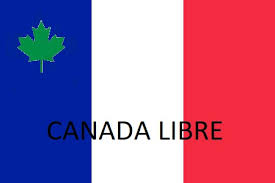CHINA: THE WEST IS UNITED... SO FAR
A few days ago, The Economist published an article on Germany's attitude
in the growing rivalry with China.
The very first page of the magazine, was eloquent. It told volumes about
the magazine inability to understand that attitude, and hope that Germany may
one day rejoin the fray. The main title was matter of fact: ''Olaf Scholz leads
a blue-chip business delegation to China''. The interesting part was just
underneath, in a smaller title: ''German industry has been strangely reluctant
to reduce its dependence''.
The word 'dependence' seems to be inspired by the way some (read: the
Americans) describes the use of Russian natural gas by Germany, but also by
most of Europe, before the Ukrainian war, a use perceived as excessive and
unhealthy. By the same token, the article describes Germany's commercial
relation with China as another instance of 'dependence', from which, strangely
enough, it seems reluctant to let go, or at least, reduce.
The words ''strange reluctance'' shows how puzzled The Economist is by
Germany's wish, not only to maintain good economic relations with China, but to
consolidate its own economy. It is indicative of a growing difference of
attitudes inside the Western world, about China, and about what to do with the
planet's main growth engine.
Clearly, the London-based The Economist don’t see this matter the same
way some inhabitants of continental Europe do. To put it bluntly, many members
of the European Union don't want to decouple their economy from the Chinese's
economy, the way the US does. For them, decoupling is not the answer.
They don't wish to close the doors to relations between the European
Union and the 2nd biggest economy in the world. Quite the contrary, seeing no
contradictions between trading with the US and trading with China, they want to
intensify their links with the Middle Kingdom.
It shows the differences of attitude between most English-speaking
countries and most members of the European Union, in the new cold-war rivalry
that has become apparent during the Trump presidency. The same thing can also
be seen in the cases of Japan or India. Both feels somewhat threatened by
China, but both wishes at the same time to maintain good economic relations
with it.
The article is proof that a rift is starting to appear between the
English-speaking part of the Western world, united by a common language and a
shared cultural heritage, and the countries of Europe, traumatized by the
horrors of World War II and working hard to build a new continental house, one
that is peaceful and prosperous. That rift will likely grow, as time pass, as
more and more people realized that the United States understandable fear of
losing the economic race to China, to be outcompeted by the Middle Kingdom, is
not their fear.
(Text written upon a series of twits published yesterday (November 3, 2022), on Twitter, about this article: https://www.economist.com/business/2022/11/02/olaf-scholz-leads-a-blue-chip-business-delegation-to-china )




Commentaires
Enregistrer un commentaire
Bonjour, tous les commentaires sont acceptés, dans la mesure où ils sont d'ordre professionnel. Insulteurs s'abstenir...